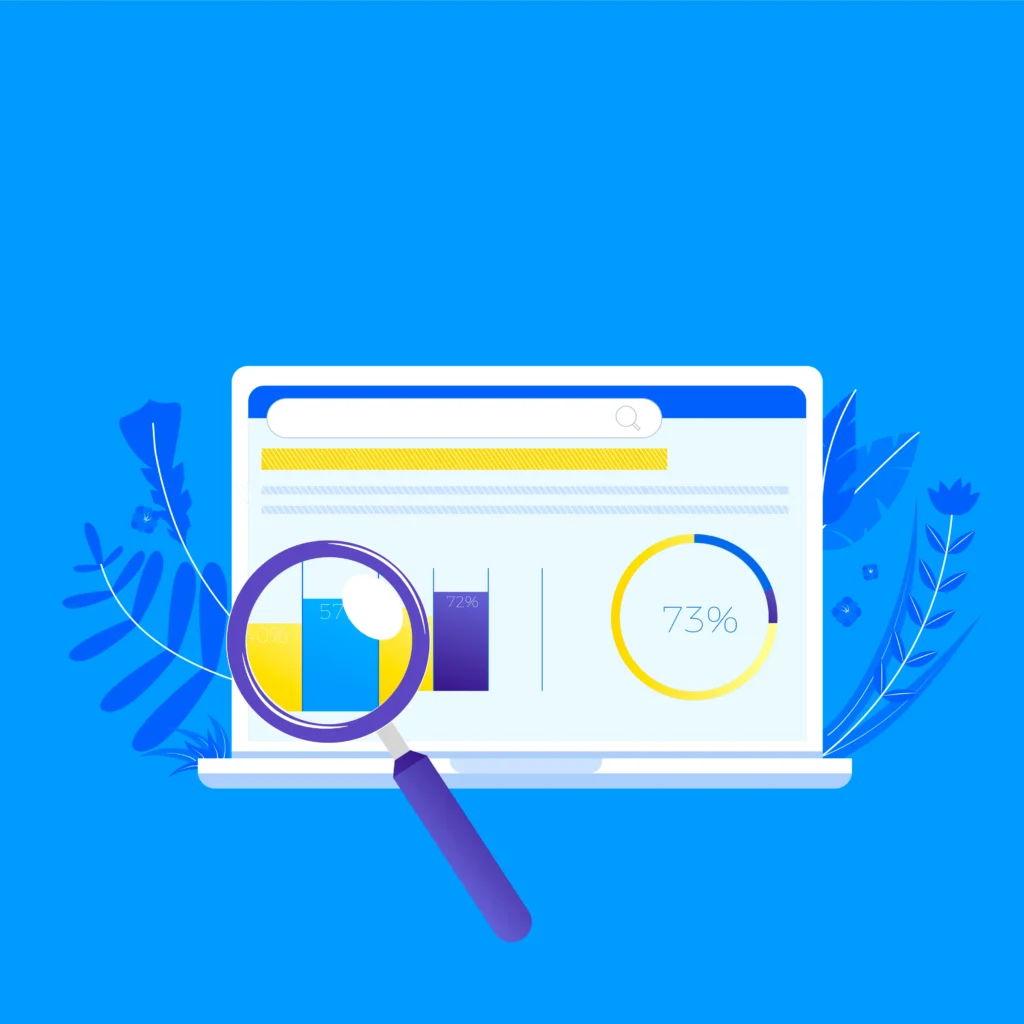A business website is more than just an online presence; it is a powerful tool that can drive growth, increase customer engagement, and boost revenue. One of the most valuable aspects of a business website is its ability to generate data through analytics. This data provides insights that can inform strategic decisions and optimize digital marketing efforts. This article will explore how businesses can benefit from using analytics on their websites, covering various aspects from understanding customer behaviour to improving ROI. We will also discuss how Digital Reach can assist businesses in maximizing these benefits.
The Importance of Business Websites
In the modern business landscape, having a website is essential. It serves as a digital storefront, a hub for information, and a platform for customer interaction. However, simply having a website is not enough. To fully leverage its potential, businesses need to utilize website analytics.
What Are Website Analytics?

Website analytics involves the collection, analysis, and reporting of web data to understand and optimize web usage. It includes a variety of metrics such as traffic sources, visitor behaviour, conversion rates, and more.
Understanding the Role of Analytics in Digital Marketing
Enhancing Customer Experience
One of the primary benefits of website analytics is its ability to enhance the customer experience. By analyzing how visitors interact with your website, you can identify areas for improvement and create a more user-friendly environment.
- Tracking User Behavior: Understand what pages users visit, how long they stay, and where they drop off.
- Personalization: Tailor content and offers based on user preferences and behaviours.
Optimizing Marketing Campaigns
Analytics provide insights into the performance of your digital marketing campaigns, allowing you to adjust strategies for better results.
- Campaign Performance: Measure the effectiveness of email marketing, social media, and PPC campaigns.
- Audience Segmentation: Identify the demographics and behaviours of your target audience to tailor your marketing efforts.
Improving SEO Strategies
Search engine optimization (SEO) is crucial for driving organic traffic to your website. Analytics tools help monitor SEO performance and identify opportunities for improvement.
- Keyword Performance: Track which keywords are driving traffic and conversions.
- Site Performance: Analyze load times, mobile usability, and other factors that affect SEO rankings.
Key Metrics for Business Websites
Traffic Sources
Understanding where your visitors come from helps in assessing the effectiveness of different marketing channels.
- Direct Traffic: Visitors who type your URL directly.
- Referral Traffic: Visitors who come from other websites.
- Organic Traffic: Visitors from search engines.
- Paid Traffic: Visitors from paid ads.
Visitor Behavior
Analyzing how visitors interact with your site can reveal what works and what doesn’t.
- Bounce Rate: The percentage of visitors who leave after viewing only one page.
- Pages Per Session: The average number of pages viewed during a visit.
- Average Session Duration: The average time a visitor spends on your site.
Conversion Rates
Tracking conversions is essential for understanding the ROI of your marketing efforts.
- Goal Completions: The number of times visitors complete a desired action, such as filling out a form or making a purchase.
- Conversion Rate: The percentage of visitors who complete a goal.
Customer Retention
Analytics can help in understanding how to keep customers coming back.
- Returning Visitors: The percentage of visitors who have been to your site before.
- Churn Rate: The rate at which customers stop using your service.
Benefits of Using Analytics on Business Websites
Data-Driven Decision Making
Website analytics provide concrete data that can inform business decisions.
- Identifying Trends: Spot trends and patterns in customer behavior.
- Making Informed Choices: Base decisions on data rather than intuition.
Enhancing User Experience
Improving the user experience leads to higher engagement and conversion rates.
- Optimizing Navigation: Ensure that users can easily find what they are looking for.
A/B Testing: Test different versions of a page to see which performs better.
Increasing ROI
Analytics help in maximizing the return on investment for your marketing efforts.
- Cost-Effective Marketing: Allocate the budget to the most effective channels.
- Performance Monitoring: Continuously monitor and improve campaign performance.
Understanding Customer Behaviour
Knowing how customers interact with your website can provide valuable insights into their preferences and needs.
- Heatmaps: Visual representations of where users click and scroll.
- User Flows: Paths that visitors take through your site.
Improving Content Strategy
Analytics can reveal what types of content resonate most with your audience.
- Popular Pages: Identify which pages attract the most traffic.
- Content Engagement: Measure how users interact with different types of content.
Enhancing E-Commerce Performance
For businesses with e-commerce websites, analytics are crucial for optimizing sales.
- Sales Funnel Analysis: Understand where customers drop off in the purchasing process.
- Product Performance: Track which products are most popular and profitable.
How to Implement Website Analytics
Choosing the Right Tools
There are various analytics tools available, each with its strengths.
- Google Analytics: A comprehensive and free tool for tracking a wide range of metrics.
- Hotjar: Provides heatmaps and user recordings to understand user behaviour.
- SEMrush: Offers SEO and competitive analysis tools.
Setting Up Analytics
Implementing analytics involves a few technical steps, but it is crucial for accurate data collection.
- Installing Tracking Code: Add a snippet of code to your website to start collecting data.
- Setting Up Goals: Define what actions you want to track, such as form submissions or purchases.
Analyzing Data
Once your analytics tools are set up, it’s time to start analyzing the data.
- Dashboards and Reports: Use dashboards to get an overview of key metrics and generate reports for deeper analysis.
- Regular Monitoring: Continuously monitor your analytics to stay informed about your website’s performance.
Taking Action Based on Insights
Data is only valuable if you use it to make improvements. Here are some actions you can take based on the analytics
- Identify Issues: Look for areas where your website is underperforming.
- Implement Changes: Make adjustments based on your insights, such as improving page load times or redesigning navigation.
E-Commerce Success
An online retailer used website analytics to identify that most users were dropping off at the checkout page. By simplifying the checkout process, they significantly increased their conversion rate.
Content Marketing Optimization
A blog used analytics to determine which topics generated the most engagement. By focusing on these topics, they were able to double their organic traffic within six months.
Improved Customer Retention
A SaaS company analyzed user behavior to identify why customers were canceling their subscriptions. By addressing these pain points, they reduced their churn rate by 20%.
Website analytics are a powerful resource for any business looking to optimize its online presence and digital marketing efforts. By leveraging data from your business website, you can make informed decisions, enhance user experience, increase ROI, and understand customer behavior in greater detail. Implementing and effectively using analytics tools can transform how you manage and grow your business.
For business owners looking to maximize the benefits of website analytics, Digital Reach offers expert consulting services. Our team specializes in building websites, graphic design, and digital marketing, and can help you set up and interpret your website analytics to drive business success. Contact our consultants at Digital Reach for personalized assistance and start making data-driven decisions today.
Contact Digital Reach for Expert Assistance



